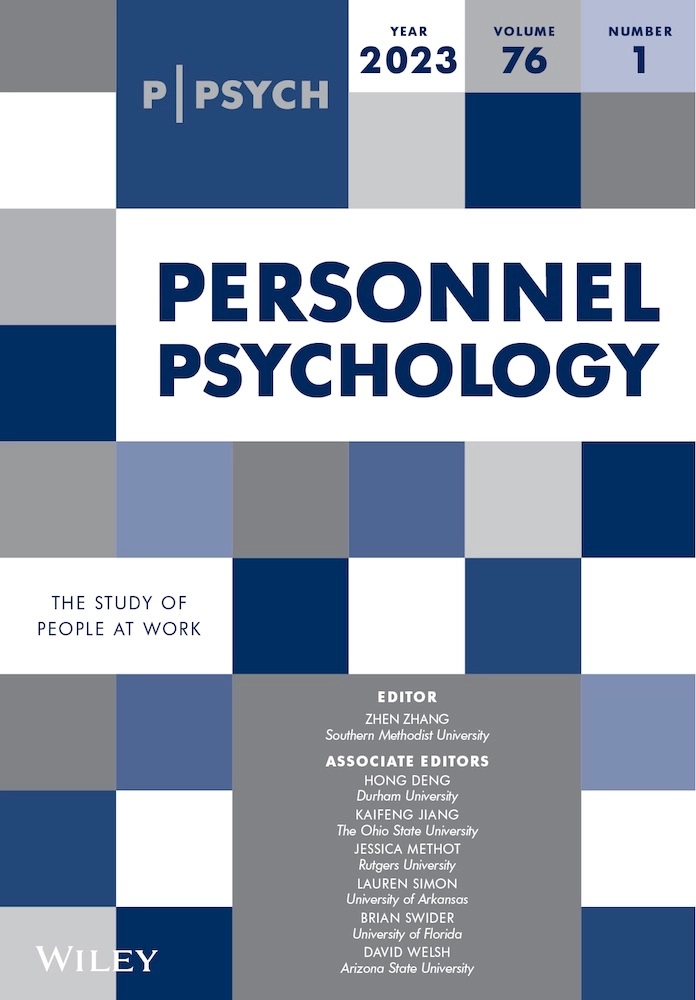In March 2023, Professor
Wei Xin from the School of Labor and Human Resources published as the lead
author the paper “Does passion matter for team innovation? The conditional
indirect effects of team harmonious versus obsessive passion via team
reflexivity” in Personnel
Psychology, a Class A international journal which enjoys high reputation in
areas of management and applied psychology.

Professor Wei Xin, along with Professor Liao Hui of the University of Maryland, Professor Zhang Zhixue and Associate Professor Dong Yuntao of Peking University, and Associate Professor Li Ning of The University of Texas at Dallas, conducted this research focusing on the relationship between passion and team innovation. Previous research believes that a person with more passion for work will be more innovative. However, Professor Wei’s research points out that, the relationship between passion and innovation is more complicated on the team level—a team with passionate team members does not necessarily guarantee higher levels of innovation. This is because innovation is born and carried out during the interactions between team members, who need to rethink and adjust their behavior through team reflexivity to cope with the changes and challenges in innovation. When different types of passion come together on the team level and impact team reflexivity in different ways, team innovation may be either be boosted or impeded.
To be more specific,
passion falls into two categories, harmonious passion and obsessive passion.
Harmonious passion takes place when individuals autonomously internalize
innovation as a part of self-identity, and decide freely when to start, modify
or cease innovative activities. Obsessive passion takes place when individuals
are forced to engage in innovative activities because of internal pressure, and
are unable to modify or cease their passion for innovative activities even when
these activities are about to or have already encountered problems. Professor
Wei and her collaborators conducted two field research on a team of 131 people
and another of 155 people, reaching consistent conclusions: the higher the mean
of harmonious passion among team members, the higher the level of team
reflexivity, hence the higher the team’s level of innovation. In addition, when
team members share similar levels of harmonious passion, the above positive
effect is stronger. In contrast, the higher the mean of obsessive passion among
team members, the lower the level of team reflexivity, hence the lower the
team’s level of innovation. However, when the levels of obsessive passion among
team members are disparate, the above negative effect does not weaken.
The research expands and
enriches the research scope of passion and innovation by revealing how
different types of passion influence team innovation, pinning down the
influence mechanism and boundary conditions. It offers important insights into
the management of team innovation: leaders need to distinguish between the
types of passion in its employees to better adjust the structure of the team.
If restructuring is difficult, employees need training on team reflexivity so
as to promote innovation.

Wei Xin is a professor from the School of Labor and Human Resources and a young scholar of the “Distinguished Scholars” Program in Renmin University of China. Her main research area includes algorithmic management, creativity and innovation, employee voice behavior, etc. Much of her research is published on first-class journals including Journal of Applied Psychology, Personnel Psychology, Journal of Occupational and Organizational Psychology, Management and Organization Review, Management World, Journal of Industrial Engineering and Engineering Management, etc. She presided three National Natural Science Foundation projects and two provincial-level foundation projects. She is among the ninth batch of Beijing Outstanding Young Talent and won the Best Paper Award of the fifth biannual meeting of the International Association for Chinese Management Research (IACMR). She is currently an editorial board member of the Asia Pacific Journal of Management and Quarterly Journal of Management.


